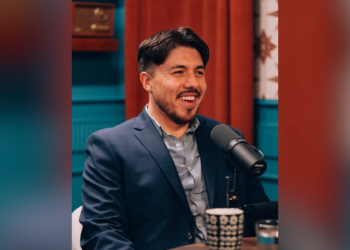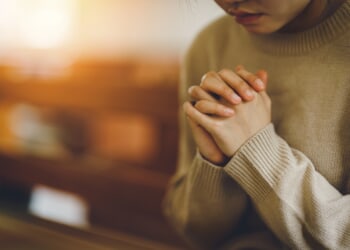Republicans swept the Evangelical Christian vote and won a historic margin among Catholics in the 2024 presidential election. These two groups of religious voters have similar priorities and increasingly similar voting habits. Nonetheless, certain differences remain.
The unity of the Evangelical right was on display last week as the Faith and Freedom Coalition hosted its annual Road to Majority Conference from June 26 to June 28 of 2025. This largely Evangelical Christian organization, which mobilizes people of faith, has led voter outreach efforts for Republican candidates and lobbied for issues including support for Israel and opposition to abortion.
This year, the organization’s keynote conference hosted dozens of speakers, including members of both houses of Congress, pastors from the Evangelical community, and political activists.
The American Spectator asked Faith and Freedom Coalition President Ralph Reed about the ability of his majority non-denominational Evangelical Christian organization to appeal outside of that demographic, particularly to American Catholic conservatives.
Reed responded with an appeal to the Catholics of America, saying “we are all in this together” while noting the presence of many Catholics in the audience, including the coalition’s incoming CEO.
A recent study from Pew Research showed that Trump won Catholic voters by 55 percent to 43 percent in the 2024 election. In comparison, he won 81 percent of the vote among white Evangelical Protestants and 70 percent of the vote among Hispanic and Asian Protestant voters.
Akin to many Evangelicals, the United States Conference of Catholic Bishops has stated that “the threat of abortion remains our preeminent priority.” In this, they are united with the vast majority of Evangelical Protestant voters. However, Evangelicals are more likely to support the Trump administration’s agenda across the board.
Catholic leadership has determined several times that Catholic social teaching clashes with current conservative priorities and recently denounced the Big Beautiful Bill as legislation that “takes from the poor to give to the wealthy” due to cuts to Medicaid, environmental protections, and its alignment with the administration’s immigration policy.
Protestants as a whole have less traditional adherence to ecclesiastical hierarchy, resulting in a more independent approach to church and other religious practices. Evangelical Christians in particular approach political issues in the sphere of self, family, or an individual church rather than taking guidance from a larger institution.
“Common Values, Common Enemies”
Support for Israel and its prioritization remains the largest visible divide between Evangelical and Catholic Americans. Israel’s right to exist was a high priority for the Road to Majority Conference.
Seeing support for Israel as a Biblical necessity represents the preeminent view in Evangelical Christian circles and one that has caused support for Israel to emerge as a major issue among religious right groups such as the Faith and Freedom Coalition.
Perhaps the most vociferously pro-Israel speaker was Lindsey Graham, a Baptist. He described America’s relationship with the State of Israel as one of “common values” and “common enemies,” but also grounded his remarks in dispensationalist theology.
Dispensationalism, pioneered by the 19th-century Reverend John Nelson Darby, an Anglican that left to form his Plymouth Brethren, broadly affirms the belief that the modern Jewish people and the nation of Israel are the legitimate successors of the Old Testament Israelites. Dispensationalism is highly influential in modern American Evangelical circles.
Graham stated that “God blesses those who bless the Jews,” speaking in support of the notion that the Jewish people maintain a unique covenant with the divine. He has previously referred to the conflict in the Middle East as a “religious war.” His views are echoed by those of Coalition president Ralph Reed, who stated that God “promised the land of Israel to the Jews” in introductory remarks.
Senator Ted Cruz, another strong supporter of the U.S. strike against Iran, maintained full support for President Trump’s actions in Iran. Cruz, whose father pastors an evangelical megachurch, has previously endorsed dispensationalist views.
Cruz harkened to a recent spat during an interview with Tucker Carlson, also of an Evangelical Protestant background. In that interview, Cruz argued that Christians have a duty to support the state of Israel on religious grounds, stating that he “was taught from the Bible that those who bless Israel will be blessed.”
Israel: Higher Priority for Evangelicals
The Catholic Church broadly does not believe Christians have a unique religious commitment to support Israel. As the church explicitly holds itself to be the continuation of the ancient Kingdom of Israel, it places no particular prophetic emphasis on the modern State of Israel.
Eighty-two percent of white Evangelicals and 51 percent of black Evangelicals believe Israel was given to the Jewish people by God.
Only 38 percent of Catholics agree with this view, with Hispanic Catholics nominally more likely. Interestingly, this is still a higher proportion than liberal Reform Jews, only 35 percent of whom agreed with the statement.
Sixty-six percent of white Evangelical Protestants stated that the Israel-Hamas War was “very” or “somewhat” important to them, and 72 percent expressed support for Israel. Among Catholics, only 56 percent regarded the war as important, and only 45 percent reported a favorable view of Israel.
That is not to say that Catholic support for Israel is anywhere close to nonexistent. The Catholic Church affirms that Jews and Catholics worship the same God. American conservative Catholics such as William F. Buckley Jr. and Michael Novak have long also been strong supporters of Israel.
Dr. Andre Villenueve is a Catholic scholar from Michigan leading the organization Catholics for Israel. He spoke to The American Spectator to explain his strong stance. He and the organization supports the Jewish state as “the only nation in the Middle East where Christians live in security and freely practice their faith.”
Villenueve told The American Spectator that he sees “no reason why Catholics cannot hold at the same time that God’s promises to Israel are fulfilled in the Church” and that “God still remains faithful to his original promises to [the old] Israel.”
However, the United States Conference of Catholic Bishops has given statements in line with critiques of Israel from global Catholic leaders such as Pope Francis. In contrast, American Evangelicals have generally given a united front, exemplified by the speakers of the Road to Majority Conference, where no Catholic speakers focused on the Israel issue.
Church in Rome and at Home Divided on Immigration
Among the speakers was Border Czar Tom Homan, a Catholic, who remembered having “worked for six presidents,” all of whom, “including Clinton and Obama, took some steps to try to secure the border because they understood you can’t have strong national security if you don’t have border security.”
Homan implored the audience to support the Trump administration’s measures to cut down on illegal immigration, asking, “What’s the downside of a secure border? What’s the downside of less women getting raped? What’s the downside of less children dying? What’s the downside of the cartel making billions of dollars less?”
Homan remains “a devout Mass-goer.” However, his position has put him at odds with the bishops at the head of the Roman Catholic Church in America, who have criticized the Trump administration’s immigration policy in statements declaring “firm solidarity with our immigrant brothers and sisters.”
The United States Conference of Catholic Bishops has instead endorsed “generous pathways to full citizenship” for illegal immigrants, citing the Roman Catholic Catechism’s declaration that wealthy nations “are obliged, to the extent they are able, to welcome the foreigner in search of the security and the means of livelihood which he cannot find in his country of origin.”
Homan, however, has often characterized his views in humanitarian terms reminiscent of statements from the bishops. In his 2020 memoir, Homan recounts coming upon a group of illegal migrants who had died from heat stroke while being smuggled across the border, including a child the same age as Homan’s son.
Homan heard “several survivors later [testify] that the innocent little boy was the first to perish, crying ‘Daddy, Daddy, I’m dying,’” after which Homan “knelt down and put my hand on his small head, and I prayed for him.”
Controversial Theology Advising the White House
Paul White, Senior Advisor to the White House Faith Office, also spoke at Road to Majority. She touted the creation of the office and her relationship with the president. White said that in 2015, she told Trump, “We felt that the word of the Lord was ‘you are going to be president.’”
The Floridian megachurch pastor has faced a multitude of criticisms from conservative Christians. Even in Evangelical circles, she was compared to Satan by the satirical Babylon Bee. White often frames offering sizable donations to her church as the scriptural duty of her congregants, preaching that blessings come from monetary offerings.
White faced an investigation by the Senate Finance Committee from 2007 to 2011, following the use of church offerings for the enrichment of herself and her family. A plethora of additional criticisms by theological leaders and institutions have cast doubt on the veracity of the Christianity White has brought to the Trump administration.
Christian News reported further backlash by American faith leaders over White’s appointment, including Southern Baptist theologian Russell D. Moore, who “described White as a charlatan and recognized her as a heretic by every orthodox Christian, of whatever tribe.”
Paula White’s theology has included promises to worshippers that God will “give you prosperity, take sickness away from you, give you a long life, bring increase and inheritance, and give a special year of blessing.”
The appointment of White has resulted in theological criticisms from many on the religious right, but it has not led to a mass departure of Evangelical voters from Trump’s base. This is likely because while many Christians seek faith to be more central to American political institutions, that is not the primary concern of elected officials.
Catholics are more likely to be influenced broadly by church leadership on administrative policies and appointments. Evangelical voters operate in more localized spheres, within which the Paula White controversy has largely remained.
Both major denominations of American Christianity have found agreement in theological criticisms of White, but neither denomination has shown any indication of abandoning the Trump administration because of her appointment.
READ MORE from Andrew Gondy and Shiv Parihar:
An Afrikaner in America Laments for His Homeland
Trump Wins $16 Million in Paramount Settlement Over Kamala Harris Interview

![Man Arrested After Screaming at Senators During Big Beautiful Bill Debate [WATCH]](https://www.right2024.com/wp-content/uploads/2025/06/Man-Arrested-After-Screaming-at-Senators-During-Big-Beautiful-Bill-350x250.jpg)














